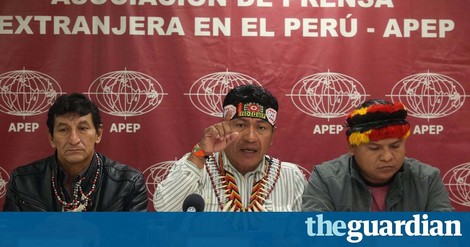Your podcast discovery platform
Curious minds select the most fascinating podcasts from around the world. Discover hand-piqd audio recommendations on your favorite topics.

piqer for: Climate and Environment
Pamela works as a Press & Communications Manager for an international NGO (IWGIA) defending indigenous peoples' rights. She holds an Erasmus Mundus MA in Journalism, Media & Globalisation from Hamburg and Aarhus University and an MA in Political Science from the University of Buenos Aires. She will be putting the eye on international media coverage of indigenous communities and their demands.
What Does Consultation With Indigenous Communities Really Mean?
What would you do if the government decides to run a development project in your yard without consulting you? Well, you should know how indigenous peoples in Peru are reacting against a 30-year contract with a Canadian oil firm (Frontera Energy Corp) on their lands.
Maybe as a non-indigenous citizen, you take for granted that your rights will be protected. But if you are indigenous, this is not the case. Indigenous Amazon leaders are now fighting to get their right to consultation implemented. Back in 2011, Peru passed a prior consultation law that forces the state to seek free, prior and informed consent from indigenous peoples in any development plans affecting their lives.
What do indigenous peoples want to be consulted on? About 100 communities from the Marañon, Pastaza, Corrientes and Tigre river basins expressed that this legal process did not take place. They want to have a say on whether oil extraction on their lands is the right path to take or not. Also, three are their main concerns: oil pollution and access to health care and education.
“If there is no consultation we will not allow the state or the oil companies in our territory for the next 30 years,” said Sandi, one of nearly 25 representatives of more than 40,000 people living in the four river basins in Peru’s northern Loreto region.
Then, the dilemma is: who has the last say on the issue? What does consultation really mean if the most affected are not equally represented?
This dispute is taking place on the largest oil field in the country. This means that the resolution of the conflict could set precedence on the indigenous legal battle for their land rights.
In the meantime, the company has extracted 7,500 barrels of oil a day in July and highlights that only the government can carry out a proper consultation process.
Stay up to date – with a newsletter from your channel on Climate and Environment.
